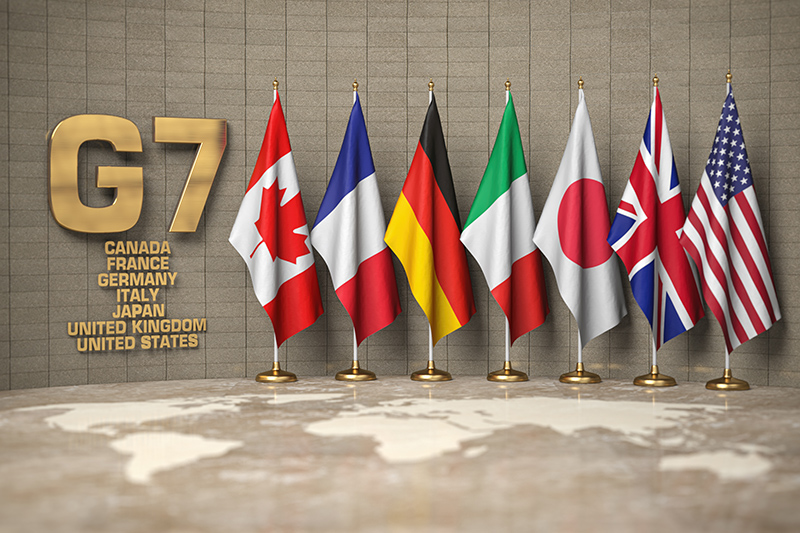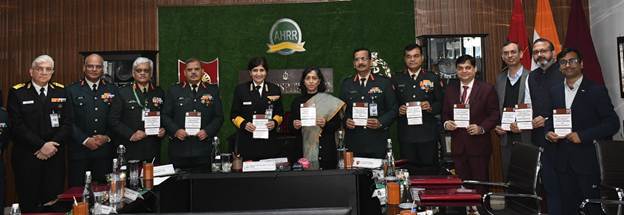
Karuizawa/Beijing: It is G7 countries versus China now. In its communiqúe in Karuizawa (Japan) today, the G7 foreign ministers of Canada, France, Germany, Italy, Japan, the United Kingdom and the United States of America and the High Representative of the European Union, asked China to “act as a responsible member of the international community”. They stated that it was in the interest of all countries, including China, “to ensure transparent, predictable, and fair business environments”. They also called on China to act in accordance with its obligations under the Vienna Convention on Diplomatic Relations and the Vienna Convention on Consular Relations.
Beijing retorted by accusing G7 of “grossly” interfering in China’s internal affairs and “maliciously” smearing and discrediting China. ” The communiqué reflects the group’s arrogance, prejudice and deliberate desire to block and contain China. We deplore and reject this and have made a strong démarche to the host Japan,” Beijing said. Chinese foreign ministry asserted that “as one of the most vibrant markets with the greatest potential, China is committed to providing a stable, fair, transparent and predictable investment and business environment for foreign investors”.
China further reacted by claiming that certain G7 members have been “oblivious to the principles of market economy and fair competition, overstretched and abused the concept of national security, and used every means possible to suppress foreign companies. They are in no position to jab fingers at China”.
The G7 foreign ministers, recognising “the importance of engaging candidly with and expressing our concerns directly to China”, reminded China of the need to uphold the purposes and principles of the UN Charter and abstain from threats, coercion, intimidation, or the use of force.
To this, China responded by claiming itself to be a “responsible major country” that “firmly acts on the UN Charter and the basic principles of international law and is committed to building a community with a shared future for mankind”.
While expressing concerns over the reported human rights violations and abuses, including in Xinjiang and Tibet, and the continued erosion of Hong Kong’s autonomy rights and freedoms, the G7 called China to protect legitimate business activities and interests of foreign companies from unfair, anti-competitive, and non-market practices, including through illegitimate technology transfer or data disclosure in exchange for market access. “We encourage China to uphold its commitments to act responsibly in cyberspace, including refraining from conducting or supporting cyber-enabled intellectual property theft for commercial gain,” the communiqúe stated.
China reminded G7 that matters related to Hong Kong, Xinjiang and Tibet are purely China’s internal affairs and that “No foreign forces may interfere in them in any way or under any pretext.
In a significant move ostensibly aimed at quelling the doubts that arose because of a recent statement by French President Emmanuel Macron with regard to Taiwan, the G7 stated that there was no change in the basic positions of the G7 members on Taiwan, including stated one China policies. After his recent visit to Beijing, Macron told an interviewer that Europe should not be a follower of either the US or China on the Taiwan issue and that Europe should not become entangled in crises that do not concern it. The G7 foreign ministers today said they supported Taiwan’s “meaningful participation in international organizations, including in the World Health Assembly and WHO technical meetings, as a member where statehood is not a prerequisite and as an observer or guest where it is”. The G7 foreign ministers reaffirmed the importance of peace and stability across the Taiwan Strait as an “indispensable element in security and prosperity in the international community, and call for the peaceful resolution of cross-Strait issues”.
In a press conference after the G7 meeting, Blinken stressed, “of course, we’re united in making clear to Beijing our opposition to unilateral changes to the status quo with Taiwan”. He said that with regard to Taiwan, “there is clear unanimity in the approach that we’re taking with all of our G7 partners and many other countries around the world, and that is an expectation that any differences be dealt with peacefully and that neither side take any unilateral actions that would disrupt the status quo that preserves peace and stability”. He claimed that “we actually have not seen greater convergence at any other time in the approach than we see now, both with Europe as well as with key countries in Asia”.
A pugnacious Beijing made it loud and clear that Taiwan is part of “China’s sacred territory”. The one-China principle is what underpins peace and stability across the Taiwan Strait. To ensure real peace in the Taiwan Strait, it is absolutely essential to unequivocally oppose and stop any act for “Taiwan independence”.
The G7 stated that it remained seriously concerned about the situation in the East and South China Seas, and strongly opposed any unilateral attempts to change the status quo by force or coercion. “There is no legal basis for China’s expansive maritime claims in the South China Sea, and we oppose China’s militarization activities in the region. We emphasize the universal and unified character of the United Nations Convention on the Law of the Sea (UNCLOS) and reaffirm UNCLOS’ important role in setting out the legal framework that governs all activities in the oceans and the seas,” the communiqúe stated.
China though claimed the situation in the East China Sea and the South China Sea “is generally stable” and told G7 to “stop sowing discord and stop creating camp confrontation”. Beijing urged G7 to reflect on their own problems and discard the Cold War mentality and ideological prejudices. “They should stop running counter to the prevailing trend of today’s world, stop pointing fingers condescendingly, stop grossly interfering in other countries’ internal affairs and stop deliberately creating antagonism and division in the international community,” Chinese foreign ministry spokesperson Wang Wenbin told media persons in Beijing today.
Responding to Blinken’s statement at the G7 foreign ministers’ meeting that China must make its intentions clear in ties with the US, Wenbin said China views and develops its relations with the US under the three principles of mutual respect, peaceful coexistence and win-win cooperation. “The root cause of current tensions in China-US relations is the misconceived China policy of the US which is based on a misguided China perception. The US needs to stop interfering in China’s internal affairs and stop harming China’s interests. It needs to stop eroding the political foundation of bilateral ties while claiming that it wants to put “guardrails” on the relationship,” he said.
– global bihari bureau





